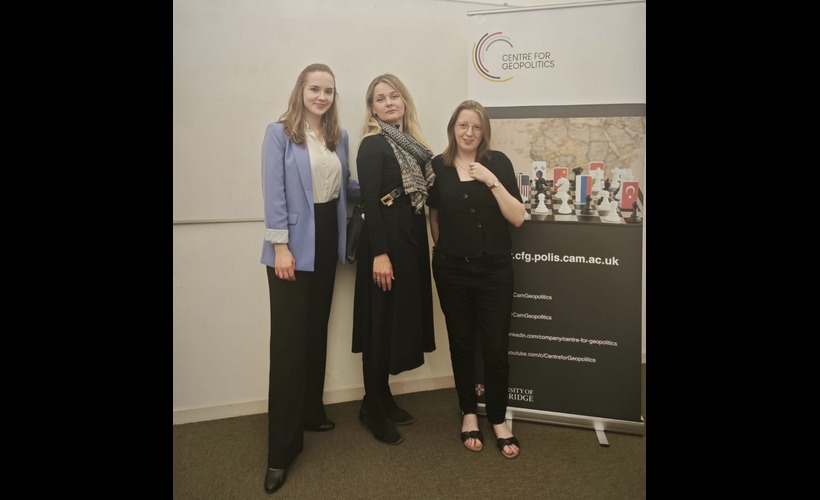By Elvira Tamus, Research Assistant
On 15 November 2023, the Centre for Geopolitics hosted an event on ‘The importance of UK-Baltic ties in meeting current geopolitical challenges in Europe’. The relationship between the UK and the Baltic Sea has been prolonged and pivotal since the early Middle Ages. The British Baltic connection began during the early Middle Ages as much of northern and eastern England and Scotland endured Viking raids, most of which were launched from Denmark. In the later Middle Ages, many eastern British towns were part of the trading Hanseatic league which extended right to the eastern end of the Baltic Sea. Relations then became more geopolitical, and, during the 18th century, the Baltic became a source of critical naval supplies such as ship masts and hemp.
During the 19th and early 20th centuries Britain retained a critical presence in the Baltic trying to keep the Russians hemmed in. In 1854, during the Crimean war, the Royal Navy attacked Russian forts off Finland and then, after the Russian Revolution in 1917, British forces were sent to support the new anti-Bolshevik states – Estonia, Latvia and Lithuania – which emerged from the wreckage. In the course of these operations Britain became a leading security guarantor of the Baltic states. Estonian independence after 1918 was assisted by the shelter of Royal Navy guns and after the Second World War, Britain remained strongly engaged in the Baltic as part of NATO. The relationship gained a new dimension when the UK joined the European Community in 1973. Since 1945, immigration from the region, especially of Poles, Latvians, Lithuanians and Estonians has been notable and, after their accession to the EU, in 2004 the number of immigrants from these states grew substantially, which became the subject of UK political controversy. The UK retains strong interests in the Baltic today but of course the relationship has been massively intensified by the Russian invasion of Ukraine in February 2022 with its associated increased geopolitical threats to everyone.
We assembled a panel of senior Baltic parliamentarians to discuss how the UK-Baltic relationship could develop in order to meet these evolving geopolitical challenges which become ever more pressing. Our panel consisted of Marko Mihkelson (Chair, Foreign Affairs Committee, Estonian Riigikogu), Zygimantas Pavilionis (Chair, Foreign Affairs Committee, Lithuanian Seimas), and Rihards Kols (Chair, Foreign Affairs Committee, Latvian Saeima). The event was chaired by Rt Hon Charles Clarke (former Home Secretary and co-founder of the Baltic Geopolitics Programme at the Cambridge Centre for Geopolitics). Marko Mihkelson talked about joint Baltic visits to Ukraine, Israel, and Turkey, and common UK – Baltic goal of making political, diplomatic, and military efforts to help Ukraine win the war and deter Russia. Zygimantas Pavilionis emphasised the importance of the UK for Lithuania and called for a detailed plan in the current geopolitical situation. Rihards Kols highlighted the significance of the Baltic countries’ defence systems and the UK’s role in these endeavours. Charles Clarke concluded that a stronger UK – Baltic cooperation is needed, for example in the field of cyber security.
The Q&A session included questions regarding the impact of the Israel / Gaza conflict on the war in Ukraine, the future of Russia, the UK’s engagement with the Baltic defence efforts, as well as UK – Baltic relations from cultural and educational perspectives.







